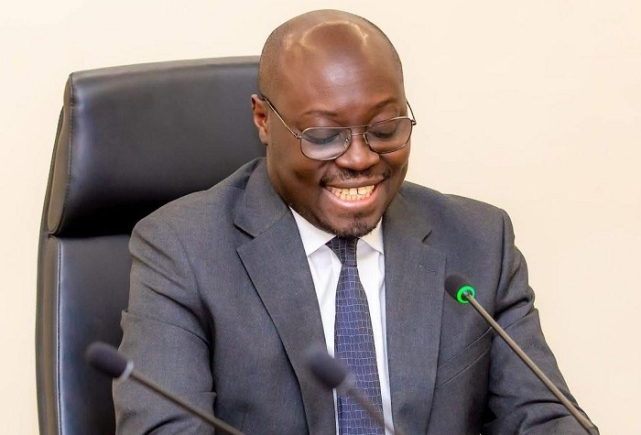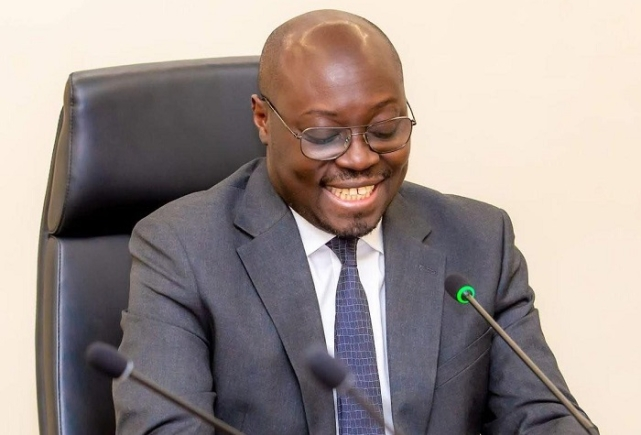
At the International Monetary Fund (IMF) and World Bank Annual Meetings in Washington, DC, Finance Minister Dr. Cassiel Ato Forson secured what amounts to a strategic repositioning of Ghana’s relationship with one of the world’s most influential development institutions. The high-level meeting with World Bank President Ajay Banga on October 14 transcends routine diplomatic engagement, coming at a moment when Ghana’s economic narrative is shifting toward renewed investor confidence.
The two leaders identified education, health, energy, roads, and agriculture as priority sectors for expanded World Bank backing. It’s a carefully calibrated choice that reflects where Ghana’s officials believe multiplier effects will be greatest. But here’s what matters beyond the announcement: the timing locks in World Bank momentum at a critical juncture for Ghana’s broader reform agenda.
Forson traveled to Washington flanked by Bank of Ghana Governor Dr. Johnson Asiama and Ghana’s Ambassador to the United States, Victor Smith. The delegation arrived fresh from a Staff-Level Agreement with the International Monetary Fund during the Fifth Review of the Extended Credit Facility (ECF), a breakthrough that unlocks an additional $385 million in IMF support. Moody’s responded by upgrading Ghana’s sovereign credit outlook, signaling external validation of the government’s fiscal discipline narrative.
What the 3News headline and competitor coverage haven’t emphasized is the interconnection between these moments. Ghana’s fifth bilateral debt restructuring agreement, combined with IMF confidence and now this World Bank repositioning, creates what officials are framing as structural momentum. The World Bank’s support across those five sectors isn’t peripheral to Ghana’s recovery story, it’s foundational. Energy infrastructure improvements support agricultural productivity. Road networks reduce transportation costs for both health services and education delivery. The sectors don’t operate in silos.
Dr. Forson characterized the Banga meeting as “productive” and emphasized that discussions centered on “both ongoing World Bank-supported projects and new initiatives that will further accelerate Ghana’s growth and transformation.” That distinction matters. Existing projects represent proven pathways with institutional learning. New initiatives signal World Bank appetite for expanded involvement in Ghana’s development blueprint. The finance minister stated clearly that these five sectors sit at the core of Ghana’s medium to long-term development vision and will form the foundation of future World Bank collaboration.
“Together, we are committed to forging stronger partnerships that will deliver tangible benefits for our people and accelerate Ghana’s journey toward inclusive and sustainable development,” he affirmed. That language about “inclusive” development carries weight in Ghana’s context, where development gains have historically concentrated in urban centers and among certain populations.
The broader Washington meetings run through October 18, creating additional opportunities for the delegation to deepen partnerships with multilateral institutions and attract investment. Ghana’s been careful to position itself as a reform story that’s gained traction. Both the IMF and World Bank issued separate public statements commending Ghana’s economic management team for demonstrating what they called prudent fiscal stewardship and coherent policy frameworks restoring investor confidence.
For Ghana’s development infrastructure, this World Bank recalibration represents more than ceremonial partnership deepening. It’s a signal that as Ghana navigates its debt sustainability journey, international institutions see traction in the reform narrative. The five sectors targeted by Forson and Banga don’t solve Ghana’s development challenges, but coordinated investment across education, health, energy, roads, and agriculture creates conditions where Ghana’s own domestic resources can generate compound effects. That’s the strategic advantage this partnership aims to unlock.
